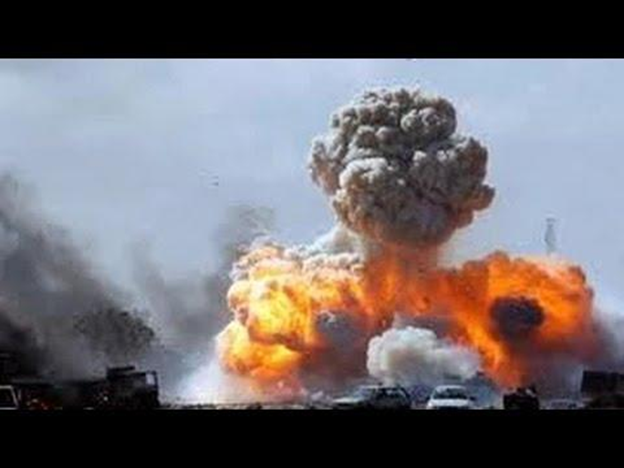Obama Announces Four Step Strategy to Defeat The IS, No Boots on The Ground
US targets Islamic State in Iraq

NEW DELHI: United States President Barack Obama, in a televised address on the eve of the 13th anniversary of the September 11 attacks, outlined the US’ strategy to fight Islamic State (IS) militants.
The speech outlined a four step strategy, which will considerably deepen American involvement in the Middle East, and begin a long-term, open-ended conflict that Obama’s presidential campaign had vowed to avoid.
However, the President insisted that American involvement in the fight against the IS does not bear resemblance to the wars in Iraq and Afghanistan, in statements pandering to declining US support for foreign wars. “I want the American people to understand how this effort will be different from the wars in Iraq and Afghanistan. It will not involve American combat troops fighting on foreign soil,” Obama said, instead, choosing to compare this effort to smaller-scale fights that the US has engaged in, such as in Somalia and Yemen.
The four steps to defeat the Islamic State as outlined by Obama ar as follows:
- Air Strikes
- Support to on-the-ground partner forces
- Counter terrorism efforts
- Humanitarian assistance
Focusing on air strikes, Obama said, “working with the Iraqi government, we will expand our efforts beyond protecting our own people and humanitarian missions so that we’re hitting ISIL targets as Iraqi forces go on offense.” The President added that the strikes will not be limited to Iraq, and could apply to Syria as well when he said, “I have made it clear that we will hunt down terrorists who threaten our country, wherever they are. That means I will not hesitate to take action against ISIL in Syria as well as Iraq.”
In a measure to support ground forces, Obama announced that an additional 475 service members will be sent to Iraq, stressing that they will be there in a non-combat role. “We will not get dragged into another ground war in Iraq. But they are needed to support Iraqi and Kurdish forces with training, intelligence and equipment. We’ll also support Iraq’s efforts to stand up national guard units to help Sunni communities secure their own freedom from ISIL control,” Obama said.
The President referred to US involvement in Syria, asking for the Congress for additional support to “train and equip” fighters belonging to various Syrian opposition groups. It is worth noting that IS made its advance as a group opposed to Bashar-al-Assad’s regime, and had initially benefited from US support to these groups. In a statement that may be repeating the same mistake, Obama said, “In the fight against ISIL, we cannot rely on an Assad regime that terrorizes its own people -- a regime that will never regain the legitimacy it has lost. Instead, we must strengthen the opposition as the best counterweight to extremists like ISIL, while pursuing the political solution necessary to solve Syria’s crisis once and for all.”
Third, the President vowed to continue and strengthen counter terrorism efforts. “Working with our partners, we will redouble our efforts to cut off its funding, improve our intelligence, strengthen our defenses, counter its warped ideology, and stem the flow of foreign fighters into and out of the Middle East,” Obama said.
The final step is the provision of humanitarian aid to civilians affected by IS’ onslaught. “ This includes Sunni and Shia Muslims who are at grave risk, as well as tens of thousands of Christians and other religious minorities. We cannot allow these communities to be driven from their ancient homelands,” Obama said.
In his speech, Obama reiterated that he had the authority to outline and implement this strategy independent of US Congressional support, but nevertheless, asked for it “ in order to show the world that Americans are united in confronting this danger.”



